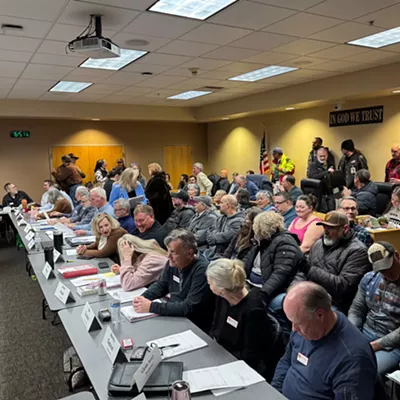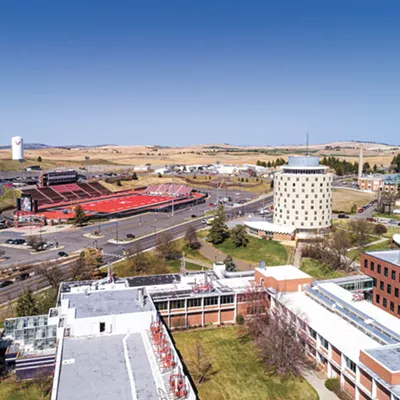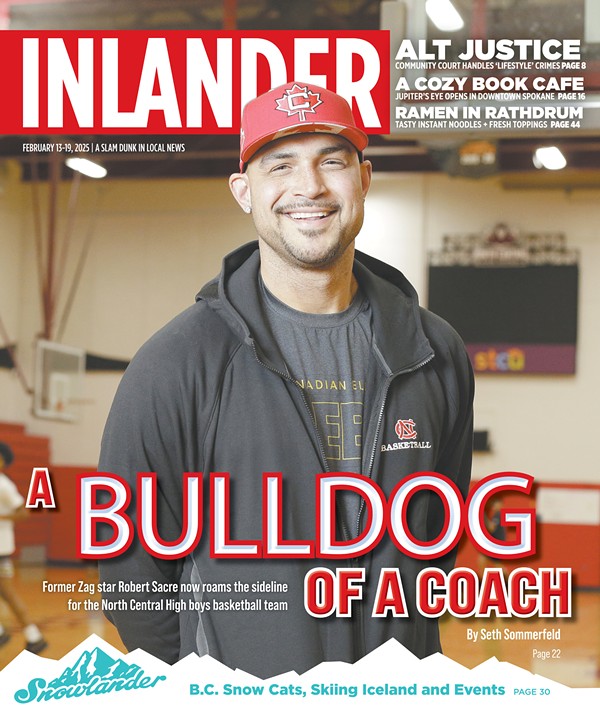
Tuesday, Nov. 3, may be remembered as the day when Never Trumpers got their revenge.
And even though most of the Never Trumpers reluctantly hopped aboard the Trump Train in the end, you had guys like Tim Miller, Jeb Bush's former communications director, who joined a political action committee with a last-ditch goal of stopping Trump before the nominating convention.
"Tim Miller is going to fight Donald Trump until the last delegate is counted," Miller told Showtime in 2016.
Trump won, of course. And for most of Trump's term, what remained of the Never Trump movement had become something of a laughingstock, mocked by both Republicans and Democrats for being helpless to steer the course of an increasingly Trumpy Republican Party.
Even then, though, Miller kept fighting Trump, first with a stint as the token Republican among Obama-alums on the podcast Pod Save America (it ended poorly) and then as a writer for the Bulwark, filling the anti-Trump conservative opinion website with newsletters, podcast episodes and hot takes.
Much of the attention has gone to the Lincoln Project, a group of Never Trump strategists blasting out a firehouse stream of bombastic ads using everything from maggot footage to penis-size jokes to condemn and troll Trump and his allies.
But the more effective group might be Republican Voters Against Trump, which aims to persuade those who voted for Trump in 2016 to vote against him in 2020. In all likelihood, these are the voters, not the ones who cheer Lincoln Project insults on Twitter, who will cost Trump the election.
Miller is the political director of Republican Voters Against Trump. Their strategy? Instead of painting the Republican Party as a tyrannical abomination, find regular everyday folks — not slick media stars — and have them share testimonials about why they just can't support voting for Trump this time.
Miller had worked on the presidential campaigns of Jeb, John Huntsman and John McCain. He'd been the Republican National Committee's liaison to the Romney campaign. And now he was trying to convince longtime Republicans like himself to reject a Republican president.
To publicly cast that aside, to reveal themselves as a Biden voter, was a deep sort of change.
"To say that you're not that anymore, that you can't support it anymore, is a loss," Miller tells the Inlander. "I've had that conversation with a number of them. It's a personal thing. It's a shift that a lot of those folks are going through."
Miller can relate to that sort of struggle on a deep level, not just politically, but personally.
"I knew I was attracted to men," he tells the Inlander. "I didn't really know what to do about it."
And of all people, it was Idaho Senator Larry Craig — caught in a messy and humiliating bathroom sex scandal — that helped Miller take the risk to come out.
Miller was 25. He remembers walking into a gay bar in Des Moines, freaking out, and walking right out again.
In the meantime, a gay investigative journalist had been going around attempting to out prominent Republicans like Craig.
"I'm like, 'I can't relate to that,'" Miller says. "I could relate to that, I found out later, but I had this internalized homophobia."
But then came Larry Craig, bearing a "message from the universe."
But then, on June 11, 2007, Craig took a career-ending bathroom break in the Minneapolis-St. Paul International Airport.
Craig was accused of soliciting sex from an undercover male police officer. Larry Craig had tapped his foot — a signal apparently used to solicit sex, the officer said. Craig had stuck his foot under the stall to touch the officer's foot — he had a "wide stance," Craig later claimed — and then swiped his hand under the stall multiple times.
The scandal appeared to confirm decades of rumors about Craig's sexuality. Yet the senator continued to deny he was gay or even bisexual.
It was like Craig was the Gay Ghost of Closet Future, a grim specter tapping at the tombstone of where Miller could end up if he continued on his path.
"I'm looking at this really sad, old man. I feel bad for him. ... All of a sudden, I started envisioning, 'Wait a minute, I might not be able to have a happy, straight life,'" Miller says. "The life [road] that I always thought I was gonna go down might be the one that is actually the sad one. I'm gonna end up with a family and kids, and I'm gonna want to be a good dad and stay in that relationship. And meanwhile, I'm gonna be like, you know, tapping my foot in an airport bathroom... It gave me the kick in the ass I need."
Miller decided to come out, and his Republican colleagues — almost to a person — welcomed him with open arms. And he had Larry Craig to thank.
He felt like he had to have the talk — where he had to come out to every boss — in the future.
Then again, culture has dramatically changed. Ric Grenell, Trump's former top U.S. intelligence official, is gay. Hell, so is alt-right former Breitbart writer Milo Yiannopoulos.
The entire culture, he says, has changed dramatically in 13 years.
"This is a cultural shift that the Republicans got swept up in," Miller says. "Pretty much any Republican nominee in 2004 would have been anti-gay and anyone in 2016 would have been 'neutral' or whatever you want to call Trump."
In the 13 years since coming out, Miller says he's been "the ear for the closeted Republican gay" numerous times, trying to pay forward those conversations that helped him to come out.
Of course, sexual orientation and politics are vastly different things. Politics is a choice.
But our political beliefs can also be embedded deep within who we are and how we see ourselves.
And even if Miller gets his wish and Trump is defeated on Tuesday, it's not like Trumpism disappears.
So that all leads to another identity question: Miller is the political director of Republican Voters Against Trump, but does he still consider himself a Republican voter against Trump?
Miller paused for a moment at the question.
"Once I vote for Joe Biden, which I plan to do soon, I'll have voted for two Democratic presidential candidates in a row, right?" he said, chuckling. "I don't know that it matters that much what I call myself."





















